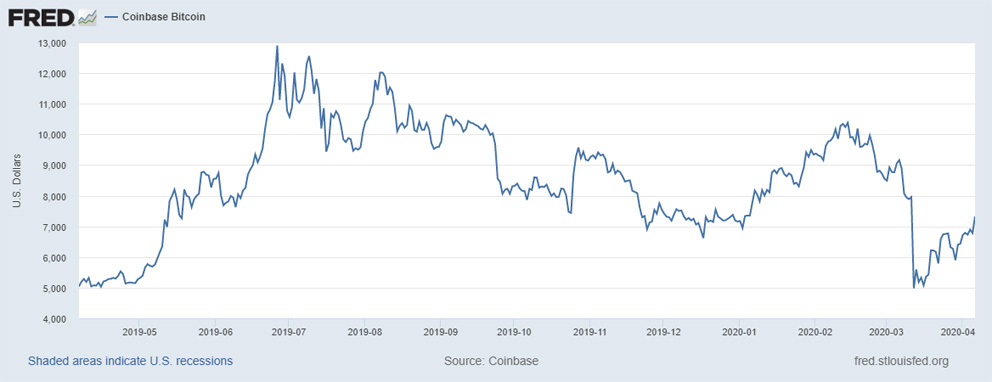The historic Bitcoin halving event next month will boost its price – but other key drivers will have a more significant, longer-term impact, according to Nigel Green, CEO and founder of the financial advisory deVere Group.
The price of Bitcoin has surged around 12% over the past week and by 6% on Monday alone – outperforming almost all the major indices. It also comes ahead of only the third-ever Bitcoin halving event in May.

The supply of Bitcoin – the world’s largest cryptocurrency by market capitalisation – is limited to 21 million units, no more than that amount can ever exist.
Every four years, in what’s known as ‘halving’, less and less Bitcoin will be mined.
In 2012, the number of new Bitcoins issued every ten minutes fell from 50 to 25. In 2016, it went down from 25 to 12.5. Now, in the 2020 halving, it will drop from 12.5 to 6.25.
“History teaches us that there is typically a considerable Bitcoin price surge resulting from halving events due to the dramatically lower supply with steady demand and increasing awareness. There’s no reason to believe the 2020 halving will be any different,” said Nigel Green.
The deVere CEO said that while halving events have previously generated major Bitcoin price runs, other key drivers will have a more significant, longer-term impact on the price of the digital currency.
“These include that we’re moving towards an era of zero-interest rates. This reduces the incentive to keep fiat currency. In addition, rate cuts typically lead to higher inflation, which reduces the purchasing power of traditional currencies,” he said.
“Therefore, Bitcoin, and other decentralised cryptocurrencies, become more attractive and the price will adjust upwards accordingly.”
The CEO, who launched the deVere Crypto app in early 2018, added that the current coronavirus pandemic will also play a significant role in supporting Bitcoin prices.
“In this time of economic turbulence, the growing consensus that Bitcoin is becoming a flight-to-safety asset has further strengthened,” Green noted.
“It’s ‘digital gold’ status is being galvanised,” he said, referring to the often-used comparison due to precious metal and the cryptocurrency sharing key characteristics, including being a store of value and scarcity.
In addition, he pointed out that Bitcoin was born in the 2008-2009 financial crisis as global anger and disillusionment grew with traditional financial institutions.
“It can be expected this financial downturn will also encourage people to buy cryptocurrencies and develop crypto-orientated businesses.”
Green added that combined with the fact that Bitcoin and other cryptocurrencies are digital and global, and the world is becoming increasingly digitalised and globalised; that demographic trends are on its side; and that institutional investors, central banks and major corporations are all coming off the sidelines, the long-term trajectory is inevitably upwards.
“Halving is likely to have a significant, positive impact on Bitcoin’s price, but it is real-world issues and adoption that will drive prices exponentially and sustainably,” the deVere CEO concluded.










